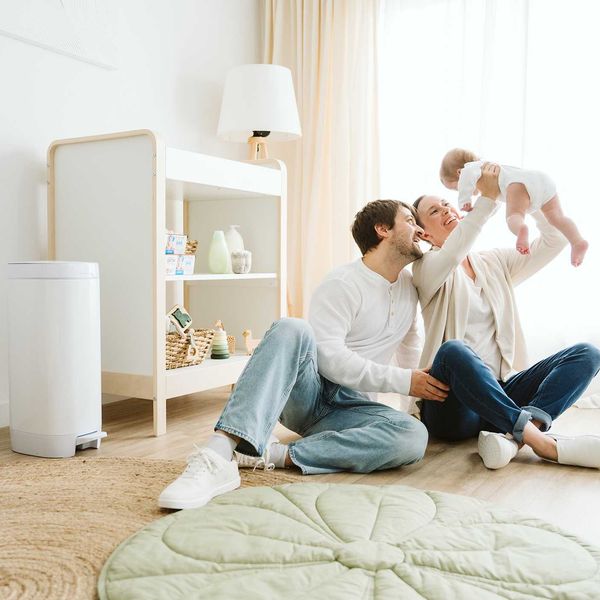Hosts of PBS's new parenting web series set the record straight on everything from COVID to constipation.
Calling All New Parents! Here's Pro Advice for Those Early Years

Theresa Gonzalez is a content creator based in San Francisco and the author of Sunday Sews. She's a lover of all things design and spends most of her days raising her daughter Matilda.
Those early years of parenthood are nothing short of amazing but also SO hard as you try to navigate the toughest job ever without any training at all. Enter our new favorite web series: Parentalogic from PBS and Nova. Hosts Dr. Alok Patel, a pediatrician and med news expert, and comedian and mom of two Bethany Van Delft offer up excellent info and totally relatable advice about serious topics in a fun, lighthearted way. (Here's the trailer). They help answer some of our most pressing parenting questions about everything from COVID to constipation— read on!
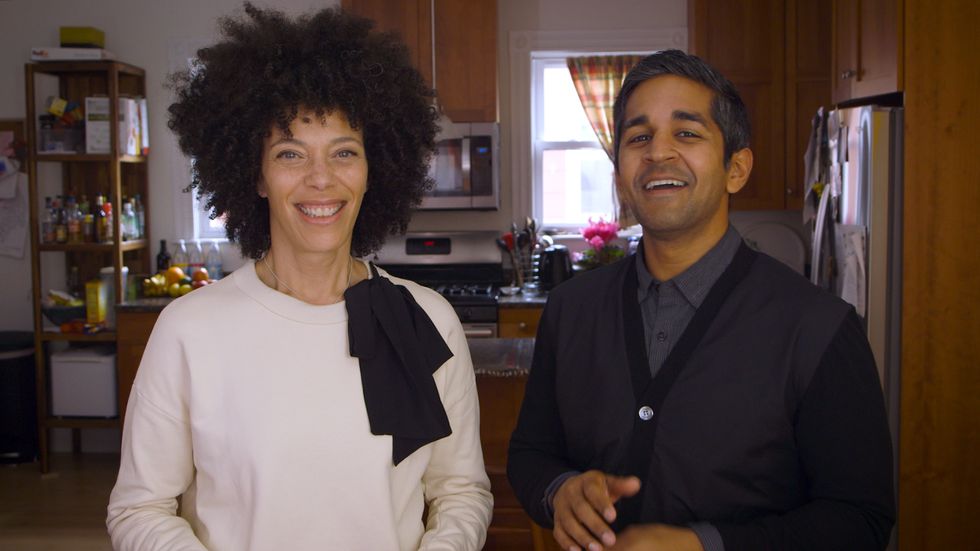
Parentalogic hosts Bethany Van Delft and Dr. Alok Patel
Babies
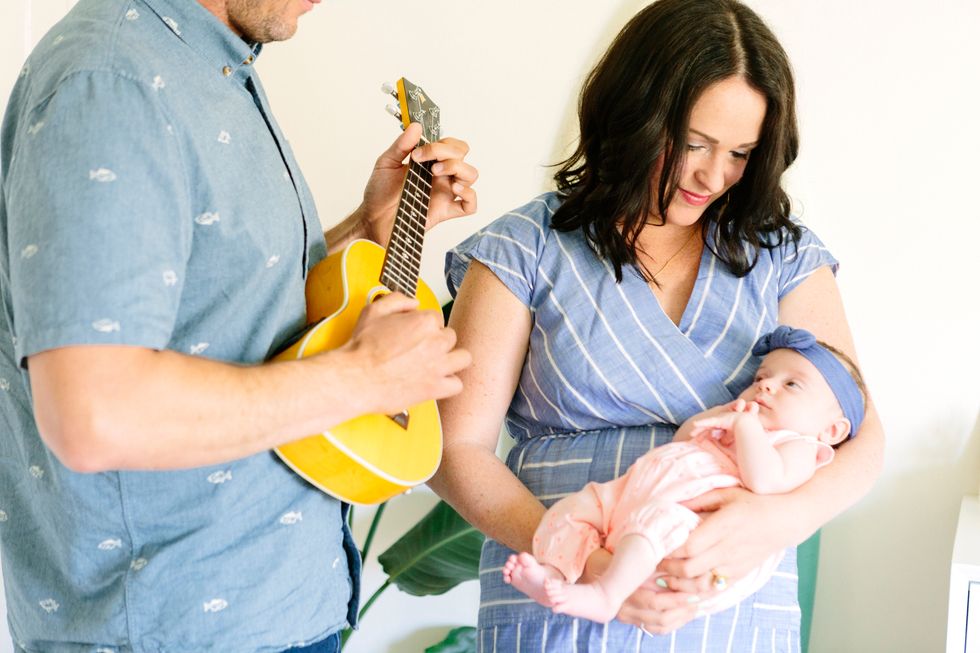
B + C: Breastfeeding — a challenge for many new moms (personally, some of us thought it was harder than labor!). What advice would you give new moms who are certain they want to go down that path?
Bethany: I think part of the challenge comes from our generation not having grown up with breastfeeding so it's not as familiar to us as generations past, coupled with it having been politicized, so it's turned into this looming, intimidating thing. If mom definitely wants to breastfeed, then stick it out as long as your baby is thriving! Know that it may take time and practice, get support, seek out other moms who have and have not had challenges. If it doesn't work out, it's important to differentiate the disappointment of things not going according to your plans from the feeling that you're not a good mother. Find a way to embrace your situation. Know that whether you're serving milk from your can or a store bought one, you are feeding and loving and caring for your baby.
Alok: Breastfeeding is nature's choice and the recommended source of nutrition for young infants for multiple reasons but that does not mean you're a "bad parent" or "failing your child" if you choose to, or have to, formula feed. I hear this sentiment from parents all the time. Whether or not you want to exclusively breast-feed, use formula or a hybrid of both, be open about your feelings, concerns and ask a lot of questions to your doctors, nurses, lactation consultants, friends, support groups — everyone. Also, remember, exclusively breast-fed infants will need additional Vitamin D and iron supplementation.
B + C: Sleep! This (or lack of it) is one of the hardest parts of those first few months. What are some good habits to get your baby on a solid sleep schedule?
Alok: Pay attention to bedtime routines. Babies learn by pattern. If you always rock your baby to sleep, or drive your baby around to get them to nap, transitioning to a crib may be difficult. Try for consistency in the sleep routine and environment. Also, parents, good sleep hygiene and bedtime behavior starts with you! A consistent bedtime, a dark environment and avoiding excess stimulation will all help build a better sleep schedule for baby, and also for you!
When it's time to start thinking about sleep training, remember, there is no one-size-fits-all method. Chat with your doctor and pick a method which best fits your situation and comfort level.
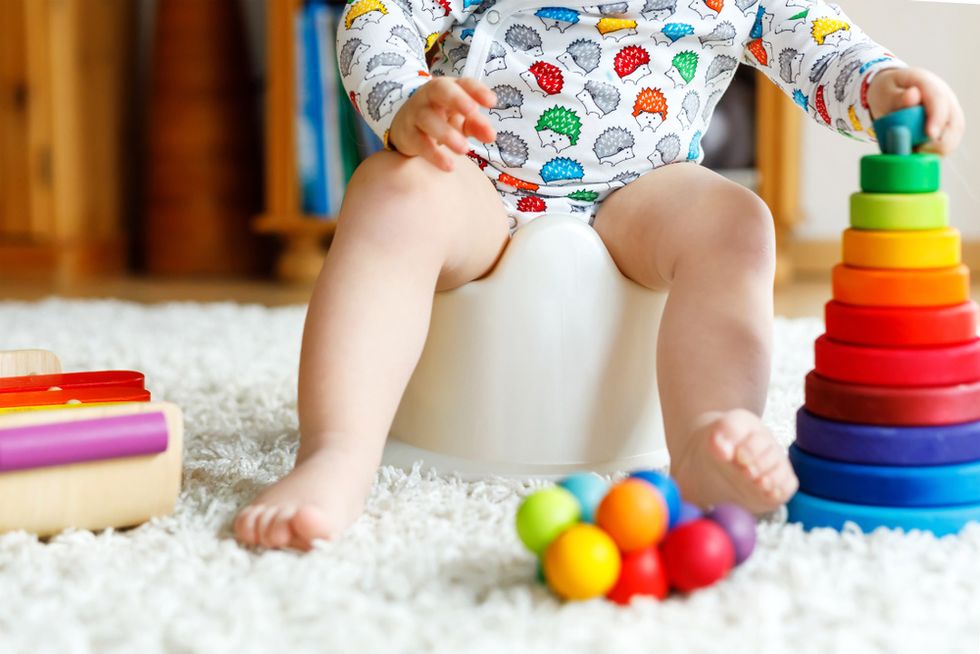
B + C: You have a poop episode that talks about the good and bad color of poop (greenish = good, black or white = call a doctor). What about constipation? Many little ones suffer through it. What are ways to prevent it?
Alok: Poop is awesome. Everyone should be more excited about the physiologic marvel that is defecation. In those early days, it's normal for exclusively breast-fed infants to go several days without stooling. Formula-fed little ones can make more adult-looking (and smelling) poops. With that being said, true constipation isn't that common in young infants - even if they look like they're straining and struggling. Try going number two on your back without strong abs and tell me how it goes.;)
Pay attention to the consistency of the stool and if it's hard, resembling small pellets, dry or containing streaks of blood, check in with your doctor. Your doctor may recommend adding a little juice (prune or apple) to your baby's diet to help move those stools. There are some other ways to incorporate more fiber into your baby's diet once he/she is eating solid foods.
But, for the love of smooth, regular stools, please do not give your infant a laxative without checking in with your doctor.
5 and under
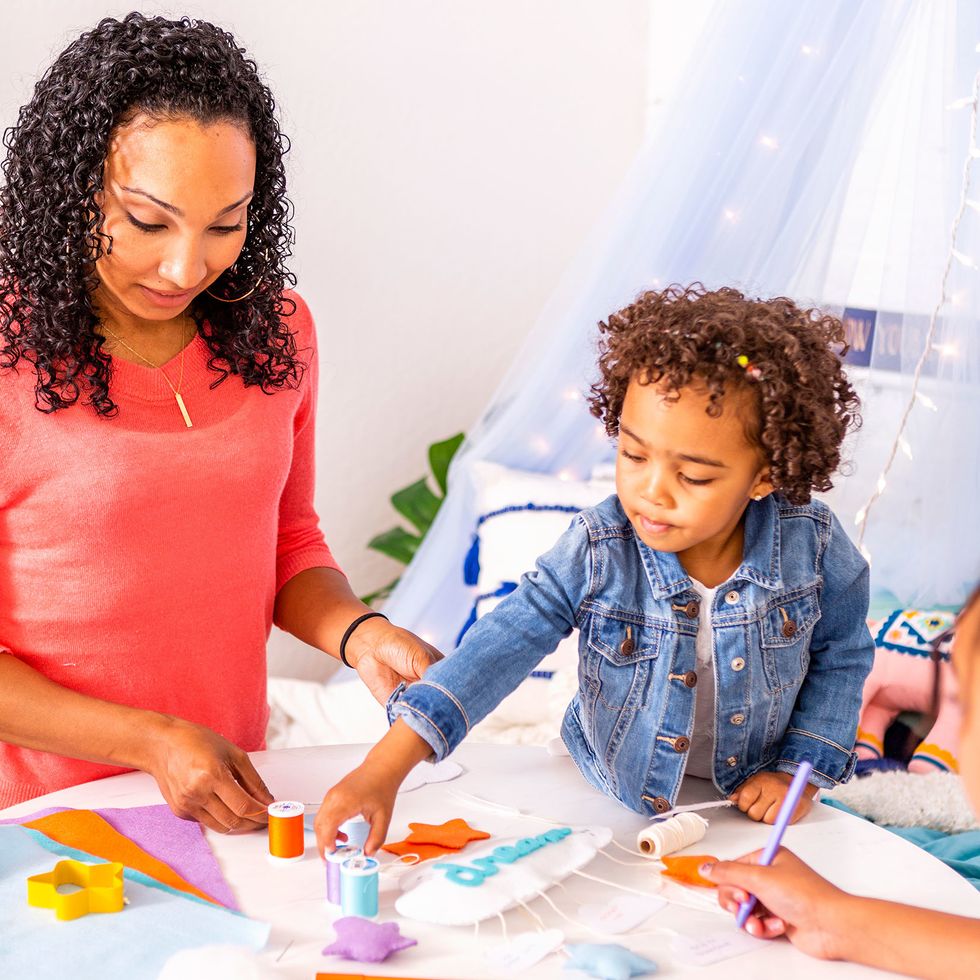
B + C: OK, now COVID — at what age is it essential for a child to wear a mask? And any advice for helping little ones understand why it's important?
Bethany: Our kids are 4 and 8.5, we talk about empathy and doing our part to keep not only ourselves but others healthy and safe as well. When it's hard for them to understand we ask Elmo and Daniel Tiger for help!
Alok: Be honest with them about what's happening with the pandemic and empower them. Explain to them what germs are, what's happening right now, and how they're protecting not only themselves but everyone around them, including their family. Tell them they're public health superheroes. This will help them understand the importance of physical distancing, hand-washing, AND mask-wearing. They'll even turn it into a game because they're kids and kids are awesome.
We recommend all children above the age of two wear a mask when they can't physically distance. Bonus points if you get them masks that can double as an everyday Halloween costume. I wish I could've worn a Teenage Mutant Ninja Turtles mask everyday when I was a kid. Maybe I'll start now...
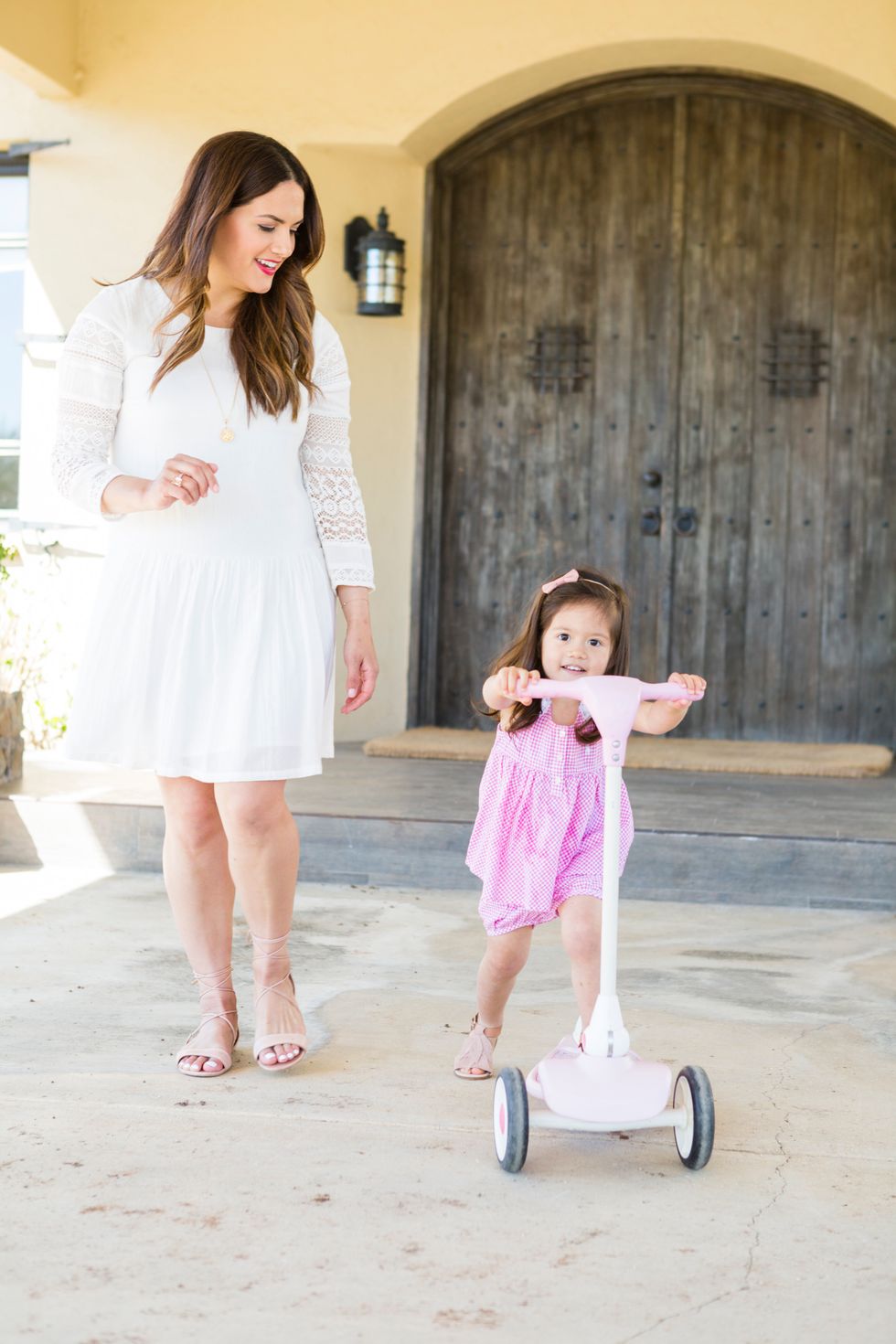
B + C: You talk about tantrums on your show and a lot of kids are regressing right now (a friend recently told us she doesn't recognize her 5YO). How can we ease up the pressure kids are feeling during this pandemic?
Bethany: We let them know they can ALWAYS talk about their feelings with us. We draw pictures about how we're feeling, we make plans for "when Coronavirus passes." We are honest with them about what is going on, in an age-appropriate way. We let them know we don't like it at all either, but we are going to get through it and we have to stay safe in order to do so. Sometimes I just have a tantrum with them.
Alok: Even with limitations in place, routine is still important for kids as are physical and creative activities. Try and find time to escape outdoors, you can have physically distanced play dates. I hear from many parents that a silver lining exists amidst the pandemic and that's the time many are now able (or forced) to spend with their families. Try to embrace that, to whatever degree you can, and encourage your kids to do the same.
One very important note, many kids and teens are at risk for mental health issues right now. Isolation and the stress faced by families can add to anxiety and depression. If you notice your child is regressing beyond the norm, not acting like themselves, or has outright signs of depression (lack of interest in hobbies, changes in sleep, appetite, etc), please do not hesitate to ask for help. It's never too early to check in about your child's mental health.

B + C: Finally, what's your take on sugar? What are some good guidelines for parents to follow, especially with Halloween around the corner?
Bethany: We limit sugar to things that are homemade. We always talk a lot about healthy teeth, what happens when they are not healthy, what sugar does to teeth and your body, how candy and soda are almost all sugar. Now they think soda is gross and except for two licks of a lolly pop every now and then, they turn down candy themselves. They love Halloween and the getting of candy so we definitely trick or treat, but insteading of eating their booty they play games with it, then pack it back up. After a week or so when they get bored with that, daddy takes all the candy to the office so mommy can keep fitting in her jeans. Uh oh, what's gonna happen now???
Alok: Here are some pearls of wisdom from the American Academy of Pediatrics:
- Try and limit daily added sugar intake to less than 25 grams or 6 teaspoons for children 2 and older. Children less than this should not have added sugar in food or drink.
- No soda, sports drinks or juice. I'm not trying to deprive your child, it's ok to give them treats and let them partake on special occasions but soda and juice will never be recommended for daily consumption.
- Good habits start early. Try using whole fruits or fruit-sweetened snacks as dessert.
- Juice really makes me mad. I don't care what the bottle says about its nutrient content or if it says it has "8 apples and a daily serving of vitamin C and blah blah," it's never better than whole foods. A bottle of juice can often carry as much added sugar as a can of soda.
- Let your kids live a little on Halloween, birthdays, and holidays. After all, you do, don't you? It's all about limitations, good daily habits, and understanding healthy versus junk food. If you deprive your child, they're inevitably going to hang out at the one house with abundant candy and go wild.
Thanks guys! Check out new episodes biweekly of Parentalogic on YouTube.


